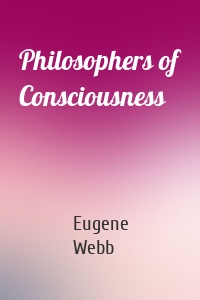Eugene Webb
4 кн.
Samuel Beckett
Collectively the works of Samuel Beckett, winner of the 1969 Nobel Prize for Literature, reveal a remarkable continuity of theme. Together his writings present a particular view of life and each novel constitutes part of a larger whole.
| Автор | Eugene Webb |
The Self Between
After the disappointing events of the 1960s, including the loss of Algeria, the Soviet invasion of Czechoslovakia, and the American war in the former French colony of Indo-China, people in France began to look seriously to Freudianism in the transformed version of Jacques Lacan, for a new way of understanding human relations and the relations between human beings and society. The movement in France is not specifically psychoanalytic but developed against such a background. Psychoanalytic thought...
| Автор | Eugene Webb |
The Dark Dove
In a subtle exposition of the tension between sacred and secular themes in twentieth-century literature, Eugene Webb analyzes works by Yeats, Mann, Rilke, Stevens, Beckett, Joyce, Nietzsche, Eliot, Auden, and Ibsen. He demonstrates the connection between modern literature and religious tradition, and shows how conceptions of the sacred and its relation to the secular have been transformed in modern literary imagery.Webb considers the writers he discusses to be the true explorers of their...
| Автор | Eugene Webb |
Philosophers of Consciousness
Philosophers of Consciousness is both an expository study of the thought of the six figures it focuses on and an original exploration of the themes they address. In addition, as Eugene Webb states, «it does not hesitate to probe the more problematic areas of the thought of each thinker and to suggest what to some of their advocates will probably seem rather bold and controversial interpreations of their ideas.»The book reveals some deep differences that set the six off against one another in...
| Автор | Eugene Webb |





